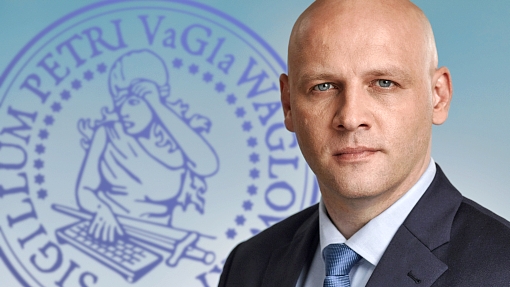Wielka Brytania: Parlament przyjął the Digital Economy Bill
Jest dalszy ciąg historii relacjonowanej wcześniej w tekście UK: Prace nad the Digital Economy Bill i uprawnienia "Pirate-Finder General". Brytyjscy deputowani przegłosowali ustawę. Z tej okazji na stronie Open Rights Group opublikowano grafikę przedstawiającą "środkowy palec" z podpisem "What Parliament thinks of your right to Internet access". Dyskurs publiczny związany z regulacjami "społeczeństwa informacyjnego" chyba się radykalizuje.
Proces legislacyjny Digital Economy Bill [HL] 2009-10 można prześledzić na stronie brytyjskiego Parlamentu (aktualny status: "The Bill is now an Act of Parliament (law)."). Internetowa strona główna Open Rights Group jest czasowo (?) zmieniona, ale w tym serwisie można przeczytać apel Stop Disconnection. W Sieci pojawiają się pierwsze komentarze, np. takie jak Screw you, Internet? Digital Economy bill passes in the UK w serwisie Ars Technica, albo Media Talk: Parliament rushes through digital economy bill w serwisie Guardian.
Najwięcej kontrowersji wzbudza chyba zobowiązanie dostawców usług internetowych do ograniczenia naruszeń prawa autorskiego. Narzędziem do tego ma być nowa klauzula "Power to make provision about injunctions preventing access to locations on the internet". Przepisy cytuję za opublikowaną na stronie Izby Lordów wersją przyjętej ustawy:
(1) The Secretary of State may by regulations make provision about the granting by a court of a blocking injunction in respect of a location on the internet which the court is satisfied has been, is being or is likely to be used for or in connection with an activity that infringes copyright.
(2) “Blocking injunction” means an injunction that requires a service provider to prevent its service being used to gain access to the location.
(3) The Secretary of State may not make regulations under this section unless satisfied that—
(a) the use of the internet for activities that infringe copyright is having a serious adverse effect on businesses or consumers,
(b) making the regulations is a proportionate way to address that effect, and
(c) making the regulations would not prejudice national security or the prevention or detection of crime.
(4) The regulations must provide that a court may not grant an injunction unless satisfied that the location is—
(a) a location from which a substantial amount of material has been, is being or is likely to be obtained in infringement of copyright,
(b) a location at which a substantial amount of material has been, is being or is likely to be made available in infringement of copyright,
or
(c) a location which has been, is being or is likely to be used to facilitate access to a location within paragraph (a) or (b).
(5) The regulations must provide that, in determining whether to grant an injunction, the court must take account of—
(a) any evidence presented of steps taken by the service provider, or by an operator of the location, to prevent infringement of copyright in the qualifying material,
(b) any evidence presented of steps taken by the copyright owner, or by a licensee of copyright in the qualifying material, to facilitate lawful access to the qualifying material,
(c) any representations made by a Minister of the Crown,
(d) whether the injunction would be likely to have a disproportionate effect on any person’s legitimate interests, and
(e) the importance of freedom of expression.
(6) The regulations must provide that a court may not grant an injunction unless notice of the application for the injunction has been given, in such form and by such means as is specified in the regulations, to—
(a) the service provider, and
(b) operators of the location.
(7) The regulations may, in particular—
(a) make provision about when a location is, or is not, to be treated as being used to facilitate access to another location,
(b) provide that notice of an application for an injunction may be given to operators of a location by being published in accordance with the regulations,
(c) provide that a court may not make an order for costs against the service provider,
(d) make different provision for different purposes, and
(e) make incidental, supplementary, consequential, transitional, transitory or saving provision.
(8) The regulations may—
(a) modify Chapter 6 of Part 1 of the Copyright, Designs and Patents Act 1988, and
(b) make consequential provision modifying Acts and subordinate legislation.
(9) Regulations under this section may not include provision in respect of proceedings before a court in England and Wales without the consent of the Lord Chancellor.
(10) Regulations under this section must be made by statutory instrument.
(11) A statutory instrument containing regulations under this section may not be made unless—
(a) the Secretary of State has complied with section [Consultation and Parliamentary scrutiny], and
(b) a draft of the instrument has been laid before and approved by a resolution of each House of Parliament.
(12) In this section—
“copyright owner” has the same meaning as in Part 1 of the Copyright, Designs and Patents Act 1988;
“Minister of the Crown” has the same meaning as in the Ministers of the Crown Act 1975;
“modify” includes amend, repeal or revoke;
“operator”, in relation to a location on the internet, means a person who has editorial control over material available at the location;
“qualifying material”, in relation to an injunction, means the material taken into account by the court for the purposes of provision made under subsection (4);
“service provider” has the same meaning as in section 97A of the Copyright, Designs and Patents Act 1988;
“subordinate legislation” has the same meaning as in the Interpretation Act 1978.
(13) In the application of this section to Scotland—
“costs” means expenses;
“injunction” means interdict.”
Jest jeszcze jednak nowa klauzula - Consultation and Parliamentary scrutiny:
(1) Before making regulations under section [Power to make provision about injunctions preventing access to locations on the internet] the Secretary of State must consult—
(a) the Lord President of the Court of Session and the Lord Chief Justice of Northern Ireland,
(b) the persons that the Secretary of State thinks likely to be affected by the regulations (or persons who represent such persons), and
(c) such other persons as the Secretary of State thinks fit.
(2) If, following the consultation under subsection (1), the Secretary of State proposes to make regulations under section [Power to make provision about injunctions preventing access to locations on the internet], the Secretary of State must lay before Parliament a document that—
(a) explains the proposal and sets it out in the form of draft regulations,
(b) explains the reasons why the Secretary of State is satisfied in relation to the matters listed in section [Power to make provision about injunctions preventing access to locations on the internet](3)(a) to (c),
and
(c) contains a summary of any representations made during the consultation under subsection (1).
(3) During the period of 60 days beginning with the day on which the document was laid under subsection (2) (“the 60-day period”), the Secretary of State may not lay before Parliament a draft statutory instrument containing regulations to give effect to the proposal (with or without modifications).
(4) In preparing draft regulations under section [Power to make provision about injunctions preventing access to locations on the internet] to give effect to the proposal, the Secretary of State must have regard to any of the following that are made with regard to the draft regulations during the 60-day period—
(a) any representations, and
(b) any recommendations of a committee of either House of Parliament charged with reporting on the draft regulations.
(5) When laying before Parliament a draft statutory instrument containing regulations to give effect to the proposal (with or without modifications), the Secretary of State must also lay a document that explains any changes made to the proposal contained in the document laid before Parliament under subsection (2).
(6) In calculating the 60-day period, no account is to be taken of any time during which Parliament is dissolved or prorogued or during which either House is adjourned for more than 4 days.”
Ale to nie jedyne zmiany w przepisach brytyjskich...
- Login to post comments
Piotr VaGla Waglowski

Piotr VaGla Waglowski - prawnik, publicysta i webmaster, autor serwisu VaGla.pl Prawo i Internet. Ukończył Aplikację Legislacyjną prowadzoną przez Rządowe Centrum Legislacji. Radca ministra w Departamencie Oceny Ryzyka Regulacyjnego a następnie w Departamencie Doskonalenia Regulacji Gospodarczych Ministerstwa Rozwoju. Felietonista miesięcznika "IT w Administracji" (wcześniej również felietonista miesięcznika "Gazeta Bankowa" i tygodnika "Wprost"). Uczestniczył w pracach Obywatelskiego Forum Legislacji, działającego przy Fundacji im. Stefana Batorego w ramach programu Odpowiedzialne Państwo. W 1995 założył pierwszą w internecie listę dyskusyjną na temat prawa w języku polskim, Członek Założyciel Internet Society Poland, pełnił funkcję Członka Zarządu ISOC Polska i Członka Rady Polskiej Izby Informatyki i Telekomunikacji. Był również członkiem Rady ds Cyfryzacji przy Ministrze Cyfryzacji i członkiem Rady Informatyzacji przy MSWiA, członkiem Zespołu ds. otwartych danych i zasobów przy Komitecie Rady Ministrów do spraw Cyfryzacji oraz Doradcą społecznym Prezesa Urzędu Komunikacji Elektronicznej ds. funkcjonowania rynku mediów w szczególności w zakresie neutralności sieci. W latach 2009-2014 Zastępca Przewodniczącego Rady Fundacji Nowoczesna Polska, w tym czasie był również Członkiem Rady Programowej Fundacji Panoptykon. Więcej >>








Intellectual Property (IP) address
Polecam uwadze czytelników odpowiedź Department for Business, Innovation & Skills na pewne zapytanie. Skan dokumentu.
Jest to oczywiście zabawna pomyłka w pojedynczym piśmie, jednak w kontekście całej debaty zdaje się ona być cenną informacją o tym co kryje się w kolektywnym umyśle rządzących. ;-)
To może tutaj bo chyba nie ma swieższefo wątku
Blokady w sieci z powodu "bluźnierczych treści"